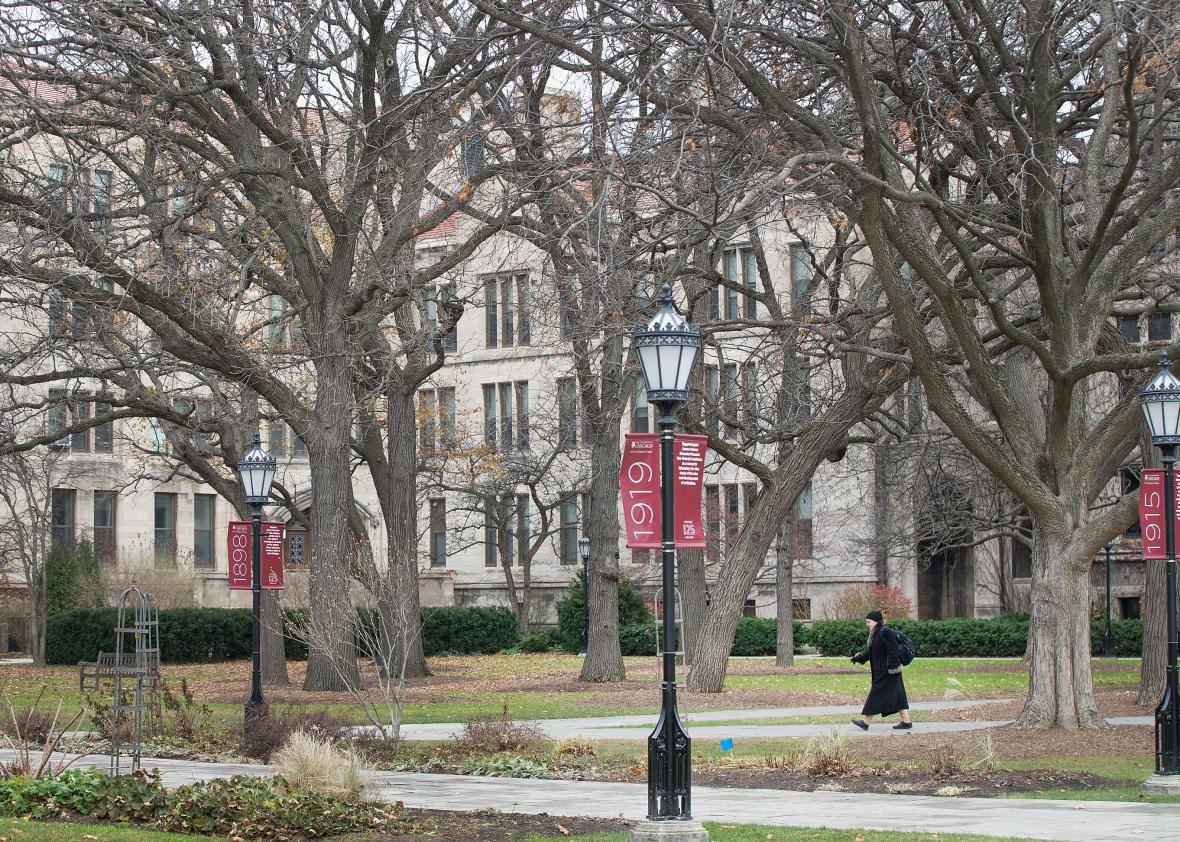The dean of undergraduate students at the University of Chicago has sent a very odd letter to the class of 2020—one that seems more designed to strike a blow in the culture wars than to edify incoming freshmen. It starts with a bunch of back-patting about how “earning a place in our community of scholars is no small achievement”—so far, so normal for a letter from a selective private school. Then it devotes a paragraph to “our commitment to freedom of inquiry and expression”:
Members of our community are encouraged to speak, write, listen, challenge and learn, without fear of censorship. Civility and mutual respect are vital to all of us, and freedom of expression does not mean the freedom to harass or threaten others. You will find that we expect members of our community to be engaged in rigorous debate, discussion, and even disagreement.
Again, this seems pretty par for the course as far as summaries of university mission statements go. The next paragraph is where things get weird:
Our commitment to academic freedom means that we do not support so-called “trigger warnings,” we do not cancel invited speakers because their topics might prove controversial, and we do not condone the creation of intellectual “safe spaces” where individuals can retreat from ideas and perspectives at odds with their own.
Even weirder, the following paragraph begins,
Fostering the free exchange of ideas reinforces a related University priority—building a campus that welcomes people of all backgrounds.
In these two sentences, the letter’s author, John Ellison, betrays a common misunderstanding of “trigger warnings” and “safe spaces”—both of which exist for the exact purpose of “building a campus that welcomes people of all backgrounds.” Trigger warnings are not intended to shield students from controversial material; they’re intended to warn students about disturbing content so that they won’t be shocked by it. For someone who has been sexually assaulted, or someone who has been personally subjected to the n-word, reading texts that include descriptions of rape or racist language can dredge up anxiety and panic; warnings help them steel themselves for the impact. As Cornell professor Kate Manne wrote in the New York Times last year, “These warnings are not unlike the advisory notices given before films and TV shows; those who want to ignore them can do so without a second thought.” Content warnings are a minor accommodation that allows students who have experienced trauma to participate in the academic community, and, properly used, they don’t infringe on anyone’s academic freedom.
Meanwhile, “safe spaces” on campus typically describe extracurricular groups that are intended to be havens for historically marginalized students. Most students don’t expect classrooms to be places where they never encounter uncomfortable ideas, but they do reasonably expect campuses to be places where they feel welcome and, yes, safe. As my colleague Nora Caplan-Bricker wrote about protests by students of color at Yale last fall,
When these students use the language of “safe spaces,” it seems to me that they’re not demanding to live in some happy place where they never have to hear or read another word of dissent. It seems to me that they’re asking for a level of acceptance, and ownership, that the majority of students at Yale already feel.
In other words, safe spaces are places where “civility and mutual respect” are taken for granted, no one is allowed to “harass or threaten others”—which is pretty close to what Ellison describes early in the letter.
Determining the line between free expression and offensive speech is not always easy, and students and administrators owe it to each other to negotiate in good faith when conflicts come up. By deriding “safe spaces” and “trigger warnings” before students arrive on campus, the University of Chicago is inadvertently sending a message that certain students—the ones who have never been traumatized, and the ones who have historically felt welcome on college campuses (i.e., white men)—are more welcome than others, and that students who feel marginalized are unlikely to have their claims taken seriously. Adults who decry “the coddling of the American mind” will likely celebrate U. Chicago’s preemptive strike against political correctness, but students who have experienced violence, LGBTQ students, and students of color likely will not.
